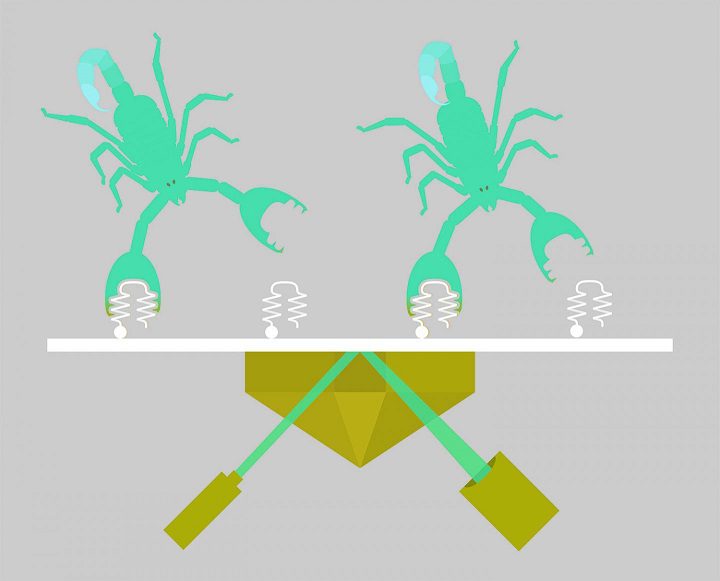[dropcap style=”font-size:100px; color:#992211;”]O[/dropcap]ther than the most basic directional geography of 1980s Moscow, we were unaware there was much useful data to be learned from scorpions.
We were wrong. Scorpions can inform us about nerve impulses. And the way to Gorky Park, obviously.
Scorpions can teach us a lot about the benefits of prolonging nerve impulses, and we might now be better students thanks to a study published in The Journal of General Physiology. The results could pave the way for easier identification of drugs that function similarly to scorpion venom, but with happier results for the recipient.
For venomous animals seeking to cripple their prey or defend against predators, voltage-gated sodium (Nav) channels are attractive targets. These transmembrane proteins, which play a key role in the generation of electrical signals in neurons, consist of four domains that make up the regions that sense changes in membrane voltage as well as the pore through which sodium ions can cross the membrane.
Various animal toxins bind to each domain’s “paddle” region, a part of the voltage-sensing domain, so named for the shape created by the helix-turn-helix structure.
Animal toxins can affect Nav channel function differently based on which paddle they target. Some toxins, that bind to paddles in voltage-sensing domains I to III, for instance, disrupt channel activation to inhibit the propagation of nerve impulses. Certain scorpion toxins, on the other hand, which bind to the paddle in domain IV, prolong nerve impulses by inhibiting channel inactivation. Depiction of the interaction of scorpion venom with the isolated “paddle” region of a Nav channel domain bound to a sensor chip.
Depiction of the interaction of scorpion venom with the isolated “paddle” region of a Nav channel domain bound to a sensor chip.
Finding molecules that similarly target the paddle could therefore be useful in developing drugs that correct abnormal channel activity. But techniques to identify such compounds can be time consuming and tedious, requiring expression of the full-length channel.
In the new study, a team of researchers from Aix Marseille Université in France and Johns Hopkins Medicine in Baltimore, Maryland, isolated the domain IV paddle and found that, even when bound to a chip, it remained sensitive to scorpion venom. The results indicate that the isolated paddle could be used to identify other molecules that target this pharmacologically important region, providing a much faster approach. The technique might also be used with other domain paddles to discover molecules that beneficially modify Nav channel activity.
Source: Rockefeller University Press
Image: Kate Baldwin

Some of the news that we find inspiring, diverting, wrong or so very right.



















